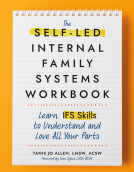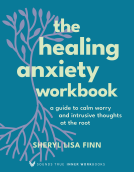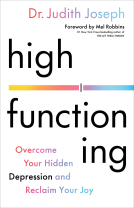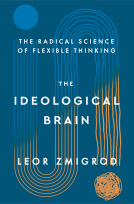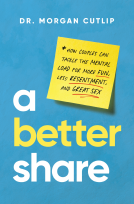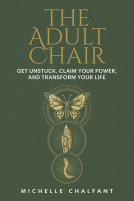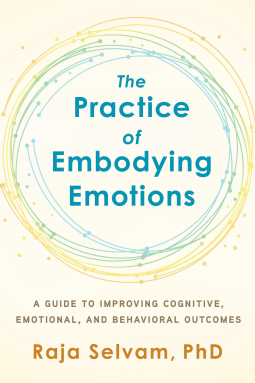
The Practice of Embodying Emotions
A Guide for Improving Cognitive, Emotional, and Behavioral Outcomes
by Raja Selvam, PhD
This title was previously available on NetGalley and is now archived.
Send NetGalley books directly to your Kindle or Kindle app
1
To read on a Kindle or Kindle app, please add kindle@netgalley.com as an approved email address to receive files in your Amazon account. Click here for step-by-step instructions.
2
Also find your Kindle email address within your Amazon account, and enter it here.
Pub Date Mar 22 2022 | Archive Date Dec 16 2021
Talking about this book? Use #ThePracticeofEmbodyingEmotions #NetGalley. More hashtag tips!
Description
A body-based, science-backed method for regulating behavior, thoughts, and feelings and improving well-being--shown to shorten therapy time and improve emotional outcomes.
In the first book on Integral Somatic Psychology™ (ISP), clinical psychologist Dr. Raja Selvam offers a new, complementary approach for building more capacity to tolerate emotions using the body--especially emotions that are difficult or unpleasant.
The ISP model shows readers how to expand and regulate emotional experiences in the body to improve different therapeutic outcomes--cognitive, emotional, behavioral, physical, energetic, relational, and even spiritual--in life and in all types of therapies, including other body psychotherapy and somatic psychology approaches. You will learn the physiology of emotions in the brain and body and how to:
A go-to guide for emotional integration, The Practice of Embodying Emotions is of value in the treatment of a wide range of clinical problems involving difficult emotions--from ordinary life events to psychosomatic or psychophysiological disorders, developmental trauma, prenatal and perinatal trauma, attachment disorders, borderline personality disorder, complex PTSD, collective trauma, and intergenerational trauma--and in improving outcomes and shortening treatment time in different therapies including psychoanalysis, Jungian psychology, and CBT (Cognitive Behavioral Therapy).
Advance Praise
“A grand accomplishment. A unique synthesis. With academic precision, and with a deep gift for reflection, Dr. Selvam takes us on a stunning journey, exploring the structure and function of emotion in the brain as well as the body, the role emotions play in health and disease, and how the body can be used to create a greater capacity to regulate and tolerate emotions to improve cognitive, emotional, and behavioral outcomes in all therapies. The Practice of Embodying Emotions is a rich addition for all therapists, as well as a gift to laypersons wishing to contact their emotional intelligence and enrich their lives.”
—Peter A. Levine, PhD, author of In an Unspoken Voice, Trauma and Memory, and Waking the Tiger
“A knowledgeable and skilled exploration of emotion and the body; and how to process and heal emotional wounds efficiently through the body.”
—Jack Kornfield, PhD, author of fourteen books including A Path with Heart
“Our capacity to regulate our emotions is extremely important for healing our attachment wounds and for having healthy relationships. This book, which offers a simple and effective method for building in us a greater capacity to regulate our emotions through our body, is a must for all therapists who work with attachment and for those looking for a self-help approach to improve their relationships.”
—Diane Poole Heller, PhD, author of Crash Course and The Power of Attachment and creator of DARe (Dynamic Attachment Re-Patterning experience) Training
“Ripe for our times, this brilliant book sheds light on the vital importance of fully embodying emotions, whether painful, pleasurable, or in-between. With an abundance of research and empirical evidence, Dr. Selvam makes the case that emotions have a stronger influence on cognition and behavior than the other way around. As a couples’ therapist and a child advocate for mental health in our schools, I experienced this book as a joyous godsend. With the support of the compassionate presence of another, emotions can be felt and fully expanded within the body to make them allies rather than foes. The author generously provides details of his four-step approach to alleviate suffering and enhance pleasure through the vehicle of emotional embodiment.”
—Maggie Kline, LMFT, school psychologist, Somatic Experiencing faculty member, author of Brain-Changing Strategies to Trauma-Proof Our Schools, and coauthor of Trauma Through a Child’s Eyes
“There are many things I like about this book. I like it that it is not only about changing emotional reactions but also about changing cognition and behavior (for the better) through regulating emotions—and that it shows scientifically how cognition, emotion, and behavior are intimately related to each other in the brain as well as the body. I also like it that it provides evidence that our cognition, emotion, and behavior are dependent on others as well as the broader environment. I like how the book alternates between theory and concrete examples and embodies the author’s persistence and brilliance. I highly recommend it to all therapists and those who are serious about their personal and spiritual growth.”
—Lisbeth Marcher, founder of the Bodynamic Somatic Developmental Psychology System, coauthor of The Body Encyclopedia, and former president of EABP (European Association for Body Psychotherapy)
Marketing Plan
Advance electronic copies; physical review copies available on request
Outreach to health, wellness, and somatics media
Author events and workshops
Advertising
Advance electronic copies; physical review copies available on request
Outreach to health, wellness, and somatics media
Author events and workshops
Advertising
Available Editions
| EDITION | Other Format |
| ISBN | 9781623174774 |
| PRICE | $21.95 (USD) |
| PAGES | 344 |
Readers who liked this book also liked:
Tanis Allen, LMSW, ACSW
Health, Mind & Body, Self-Help
James Hollis, Ph.D.
Health, Mind & Body, Religion & Spirituality, Self-Help
Sheryl Lisa Finn, MA; Sheryl Paul
Health, Mind & Body, Science, Self-Help




